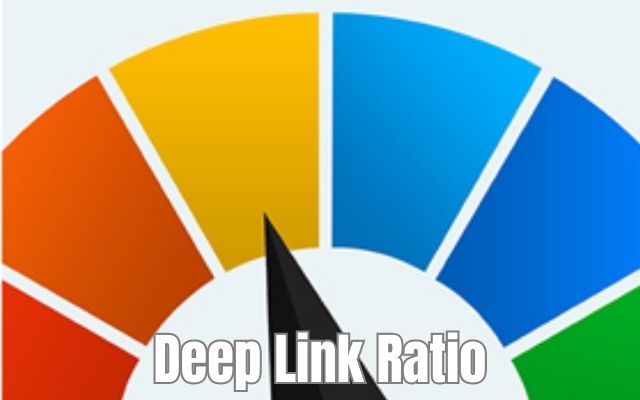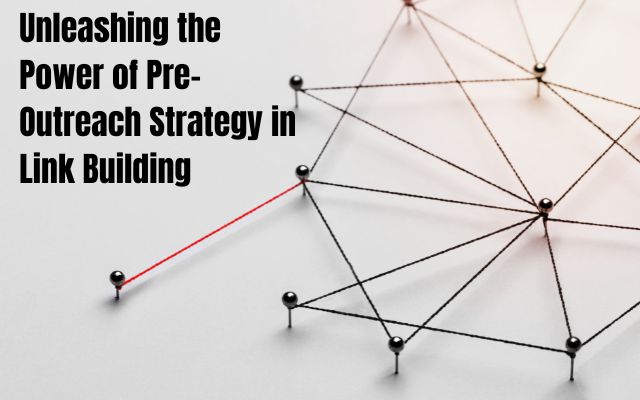Deep Link Ratio and Its Impact on Google Rankings: Myth or Reality?

Many SEO professionals debate whether the deep link ratio truly influences Google rankings, questioning whether it is a myth or a reality. In the ever-evolving world of search engine optimization (SEO), webmasters and digital marketers are constantly seeking insights into the factors that influence their website’s ranking on search engine results pages (SERPs). Google, being the dominant search engine, holds the key to unlocking the mysteries of ranking algorithms. One debated aspect is the deep link ratio, which refers to the proportion of internal links pointing to a specific page within a website. This article aims to explore the concept of deep link ratio and whether it holds any significance as a Google ranking factor.
Deep Link Ratio:
It refers to the ratio of internal links pointing to a particular page within a website compared to the total number of internal links on that website. Internal links are clickable connections between pages that are part of the same domain. Deep links, in this context, are internal links that point to pages buried deeper within a website’s hierarchical structure, rather than just the homepage or top-level pages.
The Importance of Internal Linking:
Internal linking is essential for user experience, SEO, and website navigation. It helps search engines understand the structure of a website and establishes relationships between different pages. From an SEO standpoint, internal links distribute link equity, also known as PageRank, across a website, which can impact how search engines perceive and rank those pages.
The Debate on Deep Link Ratio as a Ranking Factor:
Speculation regarding the impact of deep link ratio on search engine rankings has been a topic of debate among SEO professionals. Some believe that a higher deep link ratio, indicating a significant number of internal links pointing to a specific page, can signal the page’s importance and relevance to search engines. According to this perspective, a higher deep link ratio may positively influence a page’s ranking on SERPs.
On the other hand, skeptics argue that deep link ratio may have limited relevance as a ranking factor. They emphasize that Google’s ranking algorithms are far more complex and consider numerous factors beyond just the internal link structure of a website. These factors include content quality, relevance, backlinks, user engagement metrics, and many more.
Google’s Stance:
As with most aspects of its ranking algorithms, Google has not explicitly confirmed or denied the significance of deep link ratio as a ranking factor. The search engine giant is known for maintaining a level of ambiguity to prevent manipulation of its algorithms.
Best Practices for Internal Linking:
While the impact of deep link ratio remains debatable, it is widely accepted that internal linking strategies can positively impact SEO efforts. Here are several internal connecting best practises:
- Create a clear website structure: Establish a logical hierarchy of pages within your website to facilitate effective internal linking.
- Use descriptive anchor text: Opt for descriptive and relevant anchor text when linking to other pages within your website. This helps search engines in comprehending the setting and information on the connected page.
- Prioritize user experience: Focus on providing value to users by linking to related content and improving website navigation.
- Avoid excessive linking: Don’t overdo internal linking, as it can appear unnatural and spammy. Maintain a balance and link only when it adds value to the user experience.
FAQ
Q: Does deep link ratio impact Google rankings?
A: The impact of deep link ratio on Google rankings is still a topic of debate among SEO professionals. While some believe that a higher deep link ratio can positively influence rankings, others argue that it may have limited relevance as a ranking factor.
Q: What other factors besides deep link ratio influence Google rankings?
A: Google’s ranking algorithms consider numerous factors, including content quality, relevance, backlinks, user engagement metrics, site speed, mobile-friendliness, and more. This ratio is just one of the many factors that may potentially influence rankings.
Q: Has Google confirmed the significance of deep link ratio as a ranking factor?
A: No, Google has not explicitly confirmed or denied the significance of deep link ratio as a ranking factor. The search engine giant typically keeps its ranking algorithms undisclosed to prevent manipulation.
Q: Are there any best practices for internal linking?
A: Yes, some best practices for internal linking include creating a clear website structure, using descriptive anchor text, prioritizing user experience, and avoiding excessive linking that may appear unnatural or spammy.
Q: Should I focus solely on deep link ratio for SEO?
A: It is recommended to consider deep link ratio as part of your overall SEO strategy, but not to solely focus on it. A holistic approach that encompasses multiple factors will yield better results in improving your website’s rankings.
- Unleashing the Power of Pre-Outreach Strategy in Link Building
- Reciprocal Links: Do They Help or Hurt Your SEO?
- How To Get Quality Backlinks: 12 Ways That Really Work
Conclusion:
While the concept of deep link ratio may hold some theoretical merit, its direct influence as a Google ranking factor remains uncertain. Google’s ranking algorithms consider a wide range of factors, and it is unlikely that deep link ratio alone significantly impacts a page’s ranking. However, internal linking, when implemented strategically and with user experience in mind, can positively impact SEO efforts by enhancing website navigation, establishing content relationships, and distributing link equity across the site.







